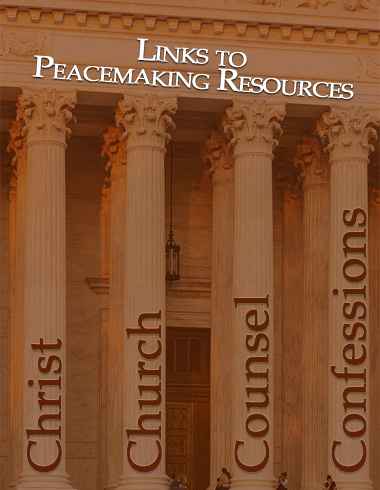MODEL RELATIONAL COMMITMENTS
Introduction
The following Commitments and Church Covenant are designed to help the people who attend our church relate to one another in a way that honors God. These Commitments cover important relational issues, such as peacemaking and reconciliation, marriage and divorce, protecting children from abuse, counseling, confidentiality, and mutual accountability.
These Commitments are intended to help us build a strong community of faith. By community, we mean a group of people who have voluntarily joined together to encourage and support one another as we worship God, grow in our understanding of his love for us, and seek to tell others about the salvation and peace they, too, can find through faith in Jesus Christ.
We know that true community isn't easy to achieve. Each of us brings our own expectations and agendas into the church. This diversity usually leads to rich discussions and creative ministries; but sometimes it can lead to conflict. As James 4:1-2 warns, "What causes fights and quarrels among you? Don't they come from your desires that battle within you? You want something but don't get it."
That certainly describes us! At times, no matter how hard we try to build a close community of faith, our desires and expectations still clash. That's where these Commitments come in. They pull together key relational principles from God's Word and serve as our relational guidelines. These Commitments accomplish several important purposes:
- They remind us of our mutual commitment to work together to pursue unity, maintain friendships, preserve marriages, and build relationships that reflect the love of Christ.
- They help to prevent surprises, disappointed expectations, confusion and conflict by describing how we expect to relate to one another within the church.
- They provide a clear track for us to run on when conflict threatens to divide us, and they show us how to move quickly toward reconciliation.
- They establish guidelines for how our leaders will counsel others, guard confidential information, and protect our children from abuse.
- They define and limit the spiritual authority of church leaders and thereby insure that all members are treated fairly.
- Finally, they reduce our church's exposure to legal liability by clearly establishing our relational practices and by affirming our mutual commitment to resolve conflict biblically.
As you read our Relational Commitments, we encourage you to study the Bible passages that are cited next to particular provisions. We want you to be confident that these Commitments are based solidly on the Word of God. If your study does not answer all of your questions and concerns, please do not hesitate to approach our leaders, who will be happy to talk with you about these principles.
We encourage you to expressly embrace these Commitments and formally join our church by going through our membership class and then signing the Church Covenant provided at the end of this document. If you are not yet prepared to become a member, we hope you and your family will continue to attend our church, worship with us, enjoy our Sunday school, find fellowship in a small group, and call on our leaders if you need counsel and support in difficult times.
If you choose to continue relating to us in any of these ways without joining the church, we will assume that you have consented to these Commitments, which will guide our relationship with you. (See "A Tale of Two Families" to learn why.) As brothers and sisters in Christ, we will do all we can to encourage you to grow in faith and godliness and to live a disciplined life that honors our Lord Jesus Christ and adds to the witness of our church.
The Leaders of [Our Church Name]
Adopted on [Date]
These Relational Commitments are adapted from The Peacemaker Church.
Used by permission of Peacemaker® Ministries
(www.PeacemakerChurch.net).
Edition 0.2
